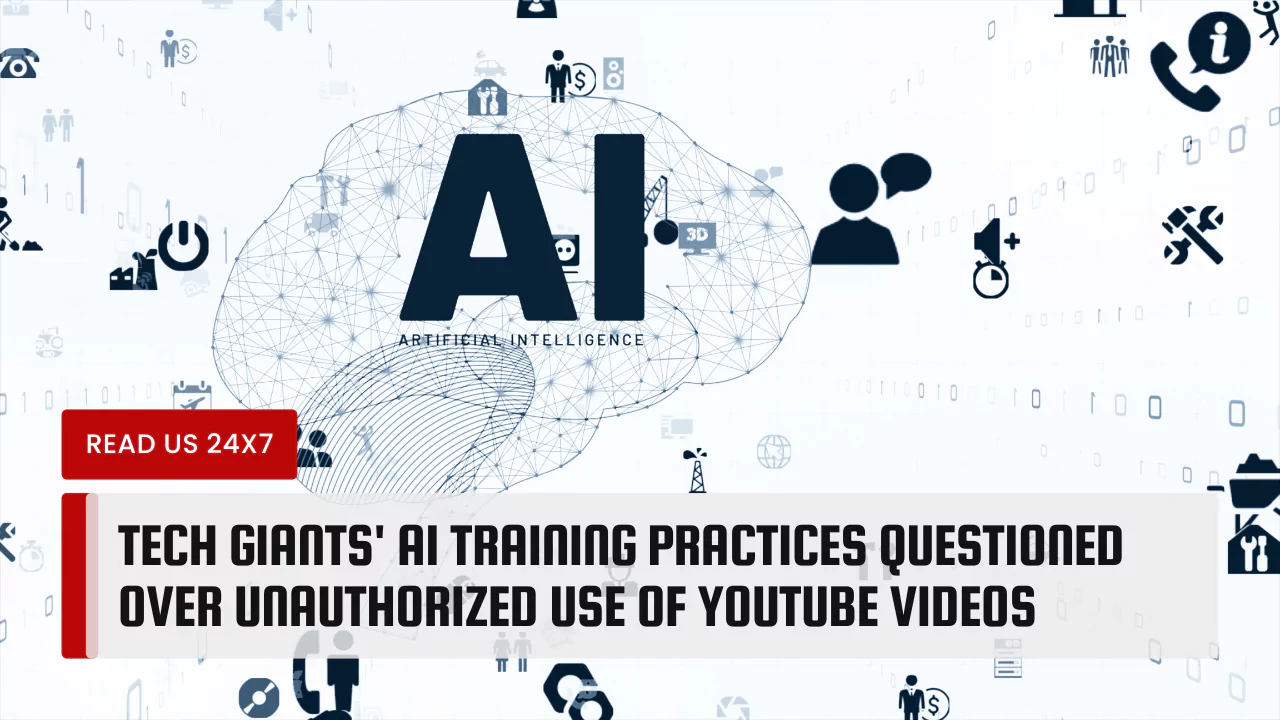Tech giants’ AI model training methods have been criticized for unlawful use of YouTube footage. Ethics and copyright issues surround the use of training data from this popular video-sharing platform.
Exploring the Controversy of AI Training with YouTube Videos
Apple’s Approach to Scraping YouTube Content
Apple, a prominent player in the tech industry, found itself entangled in the debate over the unauthorized scraping of YouTube videos for AI training purposes. Revelations indicated that Apple’s use of YouTube content, without explicit consent, sparked concerns about intellectual property rights and fair data acquisition practices.
Nvidia’s Use of Copyrighted YouTube Footage
Nvidia, a well-known name in the AI landscape, faced scrutiny for incorporating copyrighted YouTube footage into its AI training datasets. The company’s actions highlighted the necessity for transparency and accountability when sourcing data, especially from platforms like YouTube with stringent content usage policies.
Anthropic’s Handling of Uncredited YouTube Videos
Anthropic, another key player in the AI industry, faced allegations of utilizing uncredited YouTube videos in its training models. This raised questions about the importance of data provenance and the ethical implications of leveraging content without proper attribution or authorization.
Examining Ethical and Legal Issues in AI Video Training
Potential Copyright Laws Violations
The unauthorized use of YouTube videos for AI training by tech giants has brought to light potential violations of copyright laws. The legal ramifications of such practices underscore the need for stringent adherence to intellectual property rights and responsible data acquisition strategies.
Ethical Concerns in Digital Content Ownership
The ethical dimensions of AI training with unlicensed YouTube content prompt discussions on digital content ownership and creators’ rights. Ensuring that content creators are respected and duly compensated for the use of their material is essential in upholding ethical standards in AI development.
Consequences for AI Development Using Unlicensed Media
The repercussions of incorporating unlicensed media, such as YouTube videos, in AI development can extend beyond legal implications. Issues of trust, transparency, and accountability become paramount as tech giants navigate the complexities of data acquisition and ethical considerations in AI training practices.
Advocating for Ethically Sourced Data in AI Systems
The Need for Accurate and Diverse Training Data
Advocates for ethically sourced data emphasize the significance of utilizing accurate and diverse training datasets in AI systems. By prioritizing transparent and lawful data acquisition practices, tech companies can uphold integrity and credibility in their AI development processes.
Influence of Data Quality on AI Bias and Performance
The quality of training data directly impacts AI bias and performance outcomes. Ethically sourced and diverse datasets contribute to reducing biases, enhancing model robustness, and fostering responsible AI innovation that aligns with legal and ethical standards.
In conclusion, the unauthorized use of YouTube videos by tech giants for AI training underscores the importance of ethical sourcing, legal compliance, and transparency in data acquisition practices. Emphasizing the need for ethically sourced data not only upholds creators’ rights but also elevates the integrity and trustworthiness of AI systems. As the AI landscape continues to evolve, ethical considerations in data utilization will remain imperative for driving innovation responsibly and sustainably.


